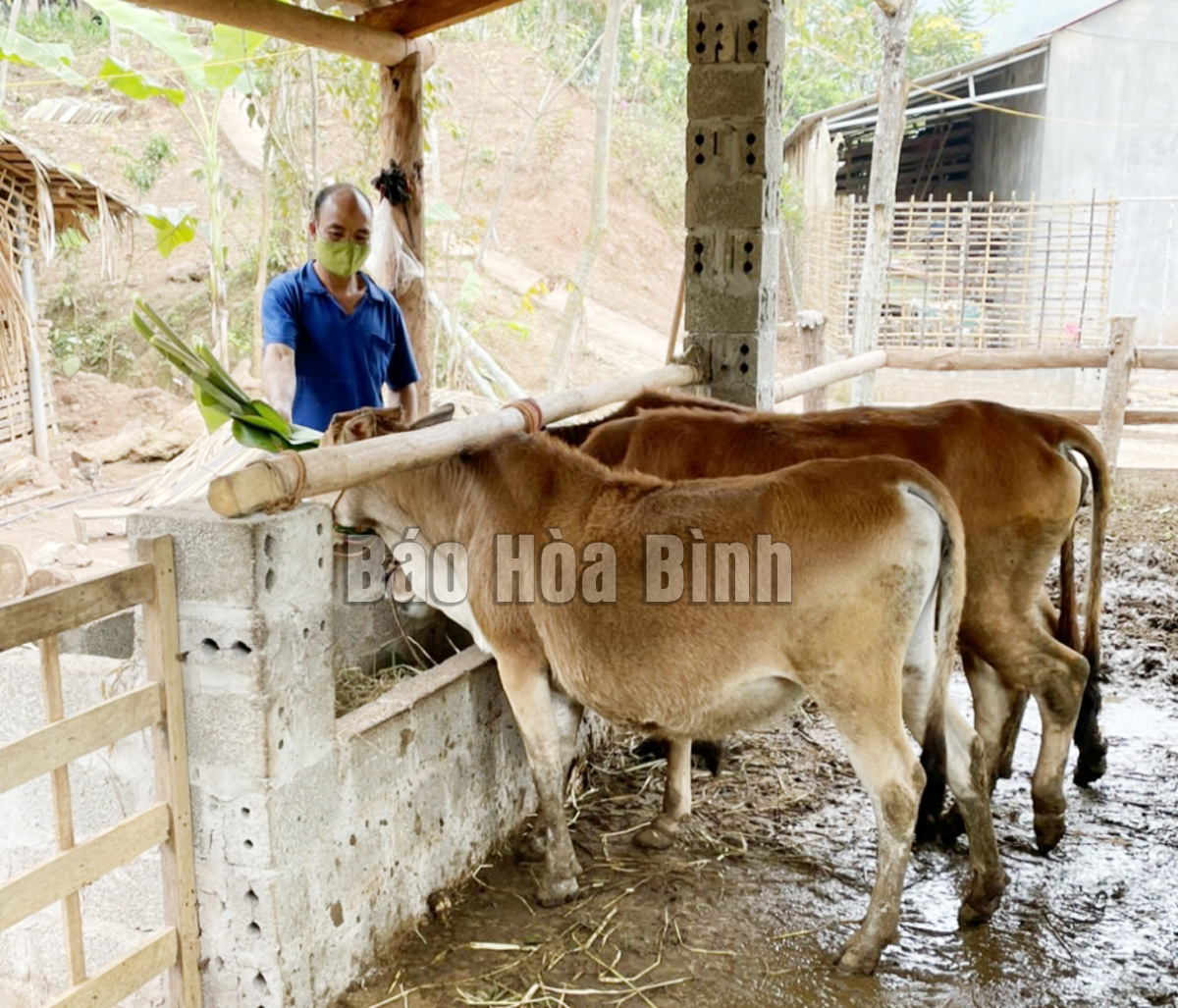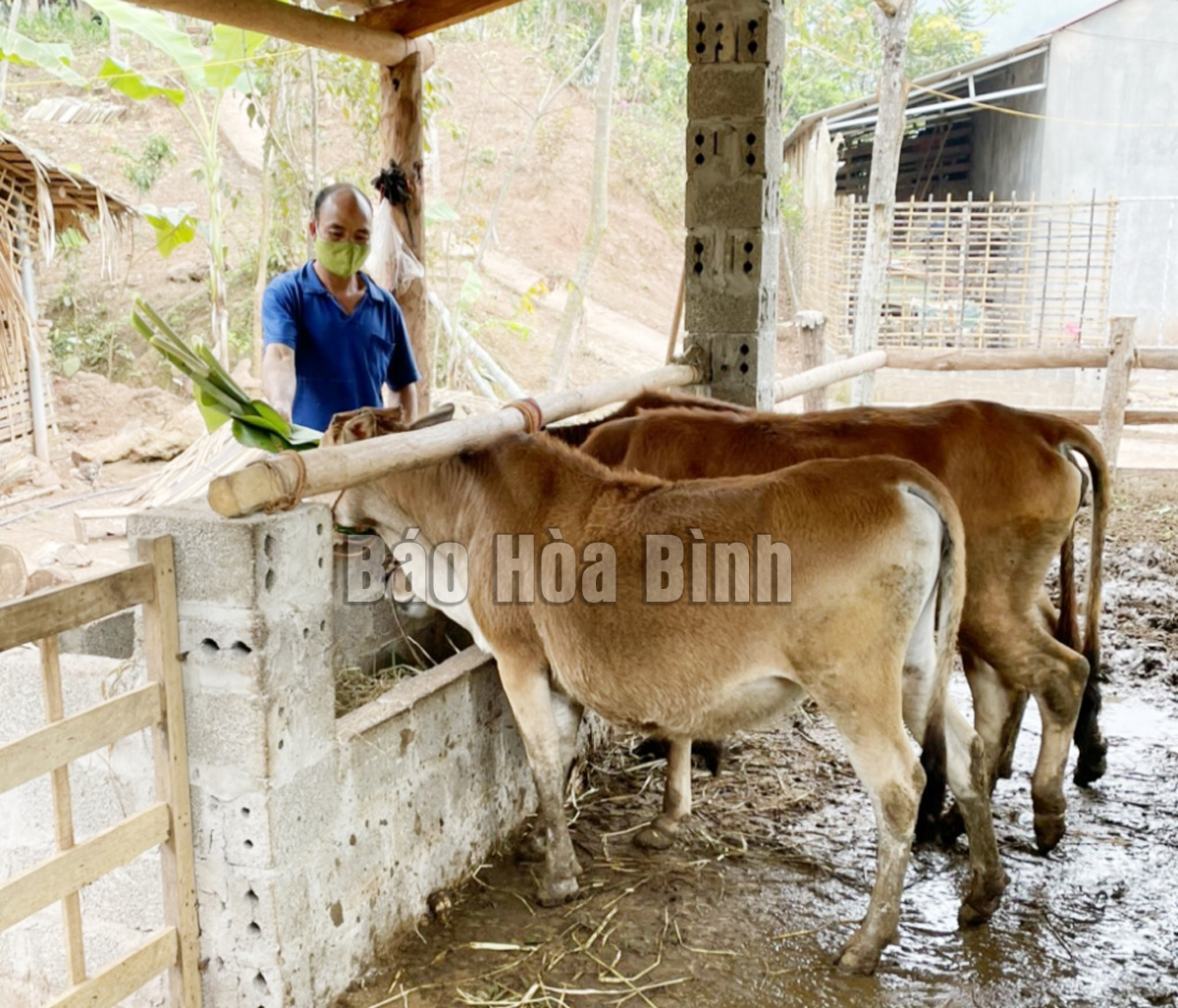
(HBO) – Loans from the Vietnam Bank for Social Policies’ branch in Mai Chau district have contributed to supporting local poor people and policy beneficiaries to overcome difficulties in the context of the complicated developments of the COVID-19.
Mr. Ha Cong Sinh’s family in Bang
village, Bao La commune of Mai Chau district, has got out of poverty thanks to
using social policy loans in breeding cows.
Over recent years, the Vietnam Bank for Social Policies (VBSP)’s branch in Mai
Chau district has worked hard in mobilising capital to promptly meet the credit
demand of local people, thus helping thousands of households create sustainable
livelihoods.
Mrs. Dinh Thi Dua’s family in Bang hamlet, Bao La commune, was previously a
poor household and met economic difficulties because they had no capital for
production. Her family has escaped from poverty thanks to effectively using
social policy loans in raising buffaloes.
Mr. Ha Cong Sinh's household in the same hamlet also got a loan of 42 million
VND to develop cow husbandry, thanks to which his family’s economy has
gradually stabilised.
Directorof the transaction office of theVBSP in Mai Chau district
Vu Hoai Nam said despite the impact of the COVID-19 pandemic, the bank well
performed tasks and plans set in 2021, with loans provided quickly to those who
needed.
The bank lent 122 billion VND to about 3,400 poor and near-poor households and
other policy beneficiaries, helping them promote economic development and
construct clean water and environmental sanitation works.
In the first two months of this year, the policy credit loans topped 16 billion
VND. The total outstanding loans of credit programmes stood at over 321 billion
VND, up 6.8 billion VND compared to the beginning of the year.
Nam said his agency will focus on lending growth credit sources; and
classifying debts to assess credit quality in the locality in order to have
solutions to irrecoverable debts.
Attention will be also paid to effectively performing the interest rate support
policy to assist people affectedbythe COVID-19pandemic, he
added./.
According to data from the Hoa Binh Provincial Party Committee, the industrial production index for the first six months of 2025 is estimated to have increased by 20% compared to the same period last year. This marks the highest year-on-year growth rate for this period since 2020.
In the first six months of 2025, Hoa Binh province’s export turnover was estimated at 1.145 billion USD, marking an 18.11% increase compared to the same period in 2024. Import turnover was estimated at $ 804 million, a 17.15% increase, which helped the province maintain a positive trade balance.
The lives of the ethnic minority farmers in Tan Lac district have gradually improved thanks to the new directions in agricultural production. This is a testament to the collective strength fostered through the professional associations and groups implemented by various levels of the district’s Farmers’ Union.
With the motto the "product quality comes first,” after nearly one year of establishment and operation, Muong village’s Clean Food Agricultural and Commercial Cooperative, located in Cau Hamlet, Hung Son Commune (Kim Boi district), has launched reputable, high-quality agricultural products to the market that are well-received by consumers. The products such as Muong village’s pork sausage, salt-cured chicken, and salt-cured pork hocks have gradually carved out a place in the market and they are on the path to obtaining the OCOP certification.
In the past, the phrase "bumper harvest, rock-bottom prices" was a familiar refrain for Vietnamese farmers engaged in fragmented, small-scale agriculture. But today, a new spirit is emerging across rural areas of Hoa Binh province - one of collaboration, organisation, and collective economic models that provide a stable foundation for production.
Maintaining growing area codes and packing facility codes in accordance with regulations is a mandatory requirement for agricultural products to be eligible for export. Recently, the Department of Agriculture and Environment of Hoa Binh province has intensified technical supervision of designated farming areas and packing facilities to safeguard the "green passport" that enables its products to access international markets.



